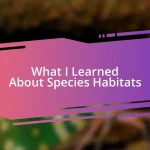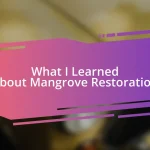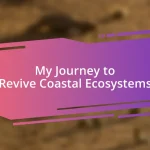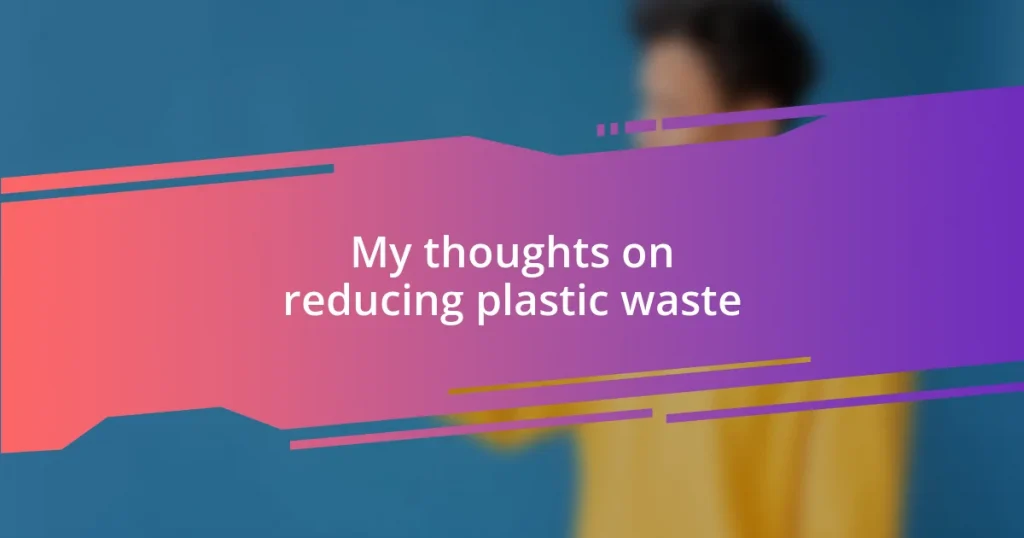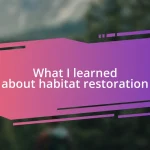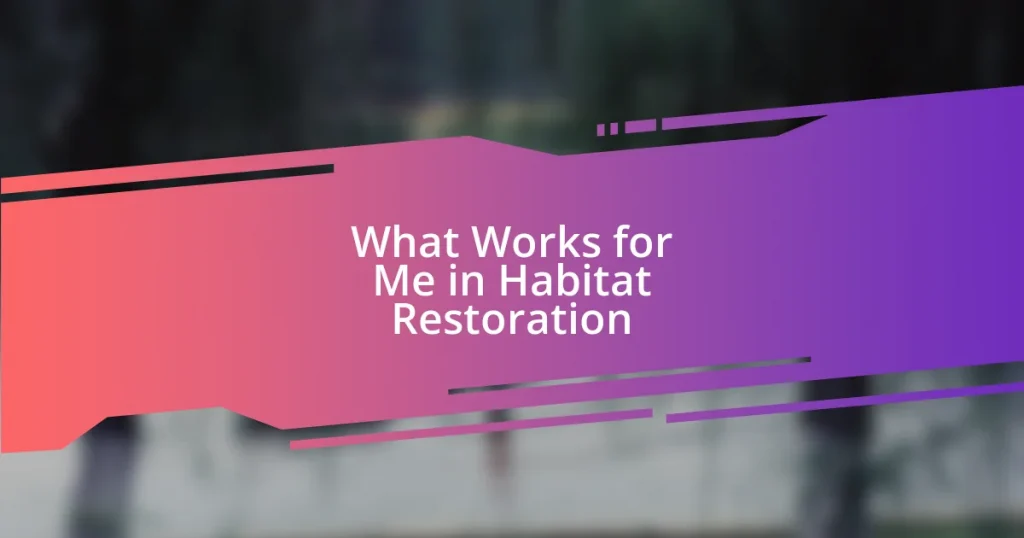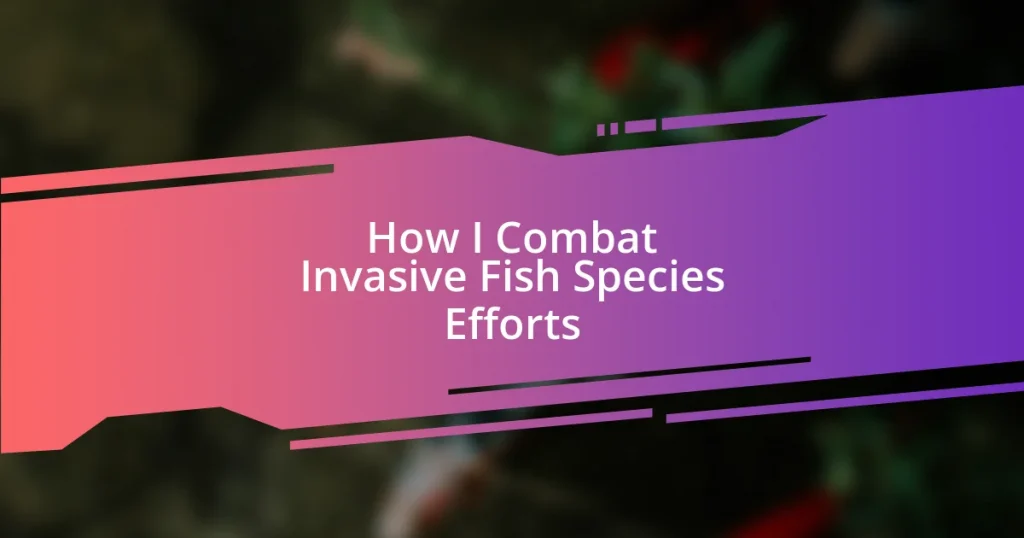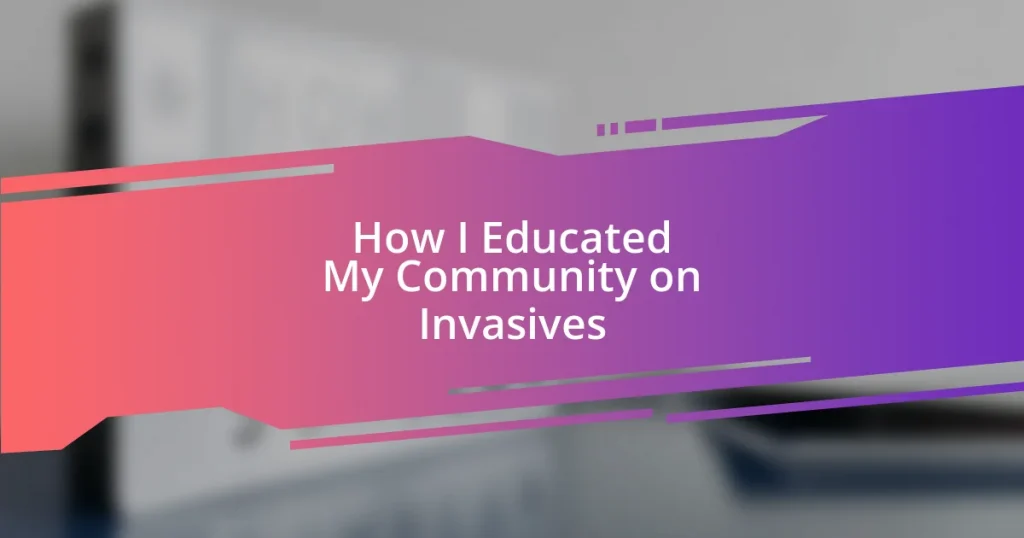Key takeaways:
- Plastic waste takes hundreds of years to decompose, causing long-lasting harm to the environment and wildlife while contributing to climate change.
- Reducing plastic use offers numerous benefits, including less pollution, protection for wildlife, lower carbon footprints, and healthier lifestyle choices.
- Community initiatives like cleanups, “no straw” campaigns, and DIY workshops empower individuals to take collective action against plastic waste.
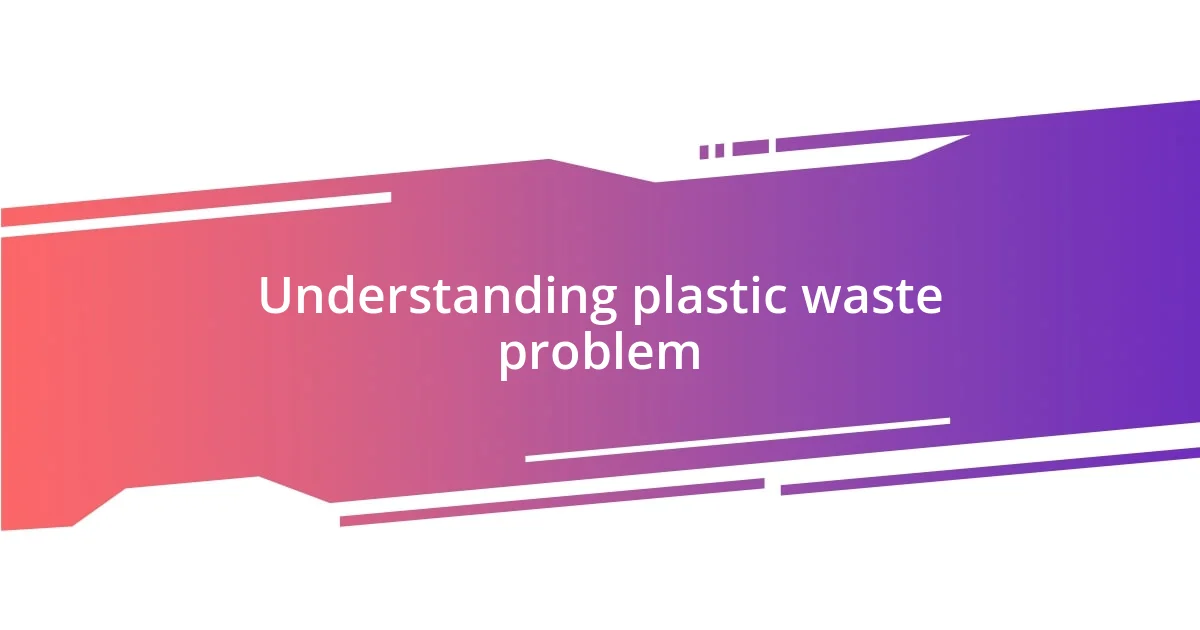
Understanding plastic waste problem
One of the most staggering realities of plastic waste is its endurance; it can take hundreds of years to decompose. I remember a beach day when I was struck by how many plastic items washed up on the shore, remnants of countless picnics and parties, and it made me ponder: how could something designed for convenience leave such a lasting mark on our planet? This disconnect between our use of plastics and their long-term impact is alarming.
Every year, millions of tons of plastic end up in our oceans, endangering marine life and disrupting ecosystems. I once watched a documentary that highlighted a majestic sea turtle, entangled in plastic debris—it was a gut-wrenching moment that made the issue painfully real for me. When we think about what we throw away, do we truly consider where it ends up and the life it impacts?
Moreover, our reliance on single-use plastics is at an all-time high. I often find myself reaching for a plastic water bottle while out and about, but it’s moments like these that encourage me to reflect: how many of those bottles do I use in a week? It’s a relentless cycle that not only clutters our environment but also embeds a troubling mindset of disposability.
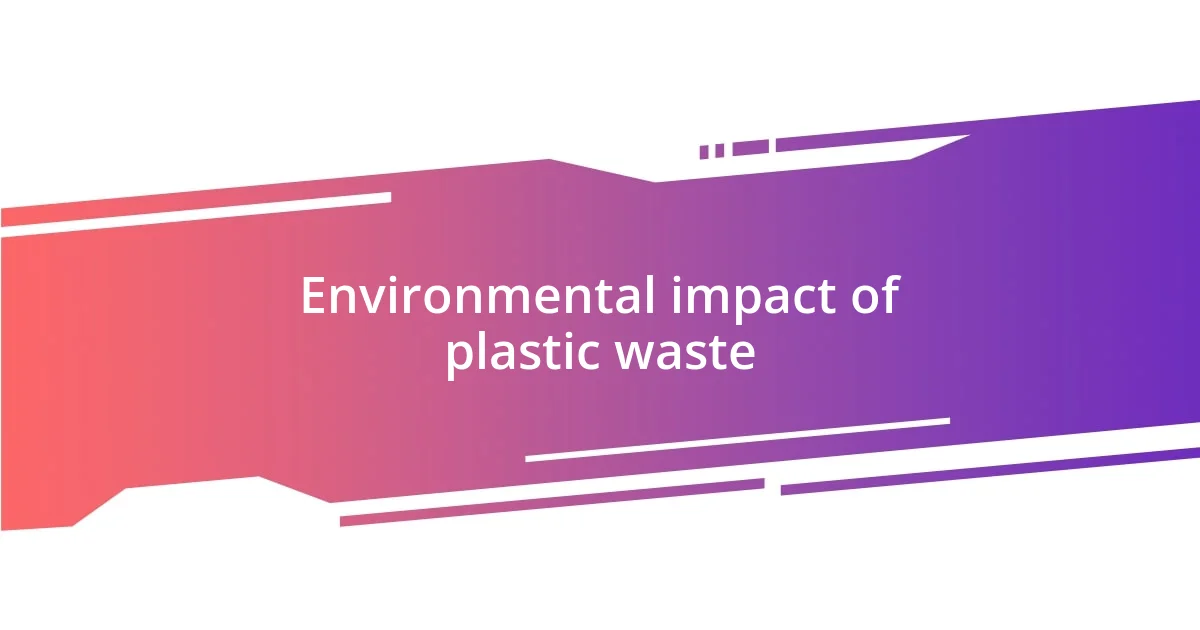
Environmental impact of plastic waste
Plastic waste casts a long shadow on our environment. Each piece that finds its way into nature can release harmful chemicals as it breaks down, leaching into soil and waterways. A few years ago, while hiking a local trail, I stumbled upon a plastic bag caught in a tree—it was a stark reminder of how our waste travels. I couldn’t help but think of the countless creatures that might mistake it for food, leading to dire consequences.
The effect on wildlife is devastating. Birds, fish, and other animals often ingest plastic or become entangled, resulting in injury or death. I recall visiting a wildlife rehabilitation center where I saw firsthand the injuries caused by plastic waste. Witnessing that suffering reinforced my belief that we urgently need to shift our habits. The question I ask myself often is: how can we justify convenience when it leads to such pain in innocent creatures?
Additionally, plastic waste contributes significantly to climate change. The production and incineration of plastics emit large amounts of greenhouse gases. I still remember a charismatic marine biologist at a seminar passionately discussing how reducing plastic use could mitigate climate impact. His call to action resonated within me, prompting a deep introspection about my choices. Realizing that our daily decisions have a ripple effect on the planet makes me determined to advocate for change.
| Environmental Impact | Examples |
|---|---|
| Takes hundreds of years to decompose | Plastic bottle lasting up to 450 years |
| Harmful chemicals leaching | Plastic releasing toxic pollutants into soil and water |
| Threats to wildlife | Animals ingesting or becoming entangled in plastic |
| Contributes to climate change | Greenhouse gases from production and burning plastics |
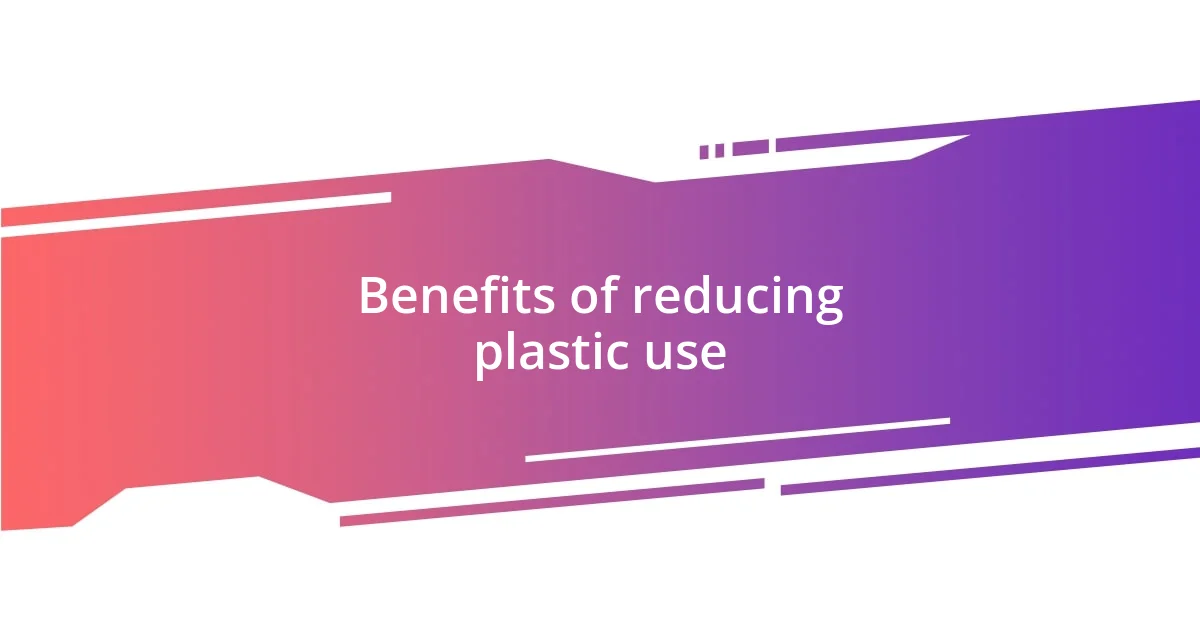
Benefits of reducing plastic use
Reducing plastic use brings a host of benefits that extend beyond just a cleaner environment; it also nurtures a healthier lifestyle. Recently, I swapped my plastic grocery bags for reusable ones, and it felt surprisingly rewarding. Every time I make that choice, I’m reminded that small actions create a ripple effect that encourages others to rethink their consumption habits. Not to mention, moving away from plastic often leads to discovering more sustainable alternatives, enhancing both our health and well-being.
Here’s a quick look at some of the benefits of reducing plastic use:
- Less Environmental Pollution: Reducing plastic means fewer materials ending up in landfills and oceans.
- Protecting Wildlife: Less plastic in the environment reduces the risks of harming marine and terrestrial life.
- Lower Carbon Footprint: Producing less plastic decreases greenhouse gas emissions, helping mitigate climate change.
- Healthier Choices: Often, reducing plastic leads to choosing fresher, less processed foods, which are better for our health.
- Empowered Communities: By supporting local initiatives to reduce plastic, we create stronger connections within our communities.
As I shifted towards a more sustainable lifestyle, I felt an immense sense of empowerment. Each small change, whether choosing a metal straw or opting for bulk purchases, has transformed how I view my consumption. It’s liberating, knowing that with every effort, I contribute to something much larger than myself—the collective movement toward a healthier planet.
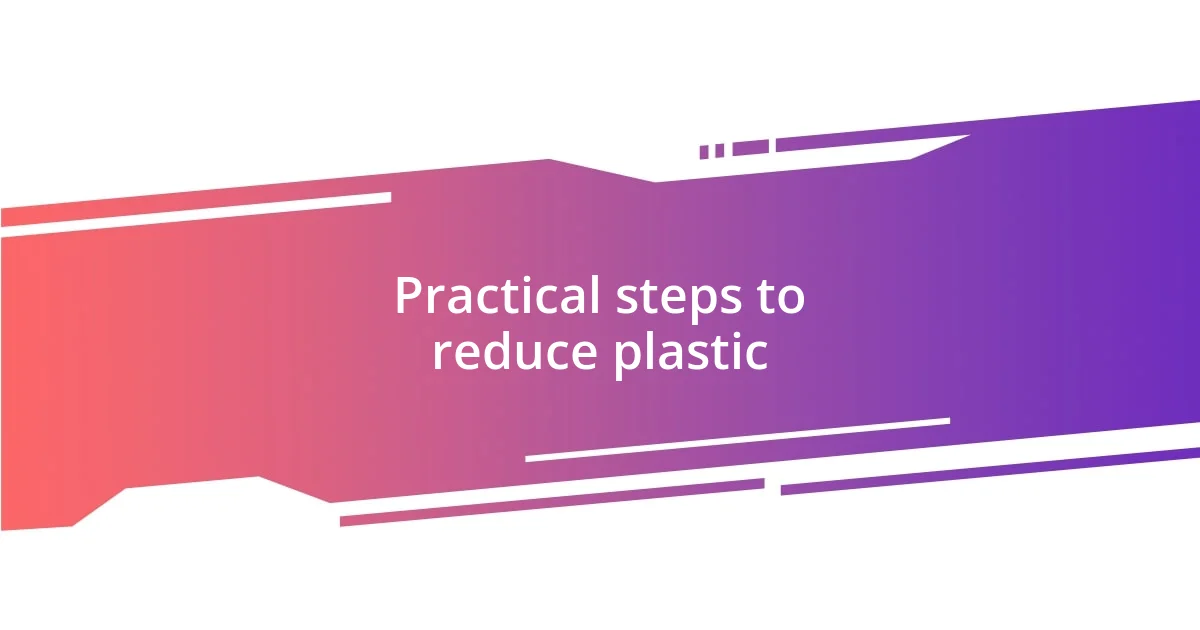
Practical steps to reduce plastic
Choosing to reduce plastic in our everyday lives may seem overwhelming at first, but it can start with remarkably simple changes. Personally, I replaced my bottled water habit with a reusable water bottle, and it felt like a small victory. Have you ever considered how much plastic waste those single-use bottles contribute? It’s eye-opening when you tally up the number you might consume in a week or month.
Another practical step is to opt for bulk purchases rather than individually packaged items. I started shopping at local bulk stores, and it was not just about cutting down on plastic; it felt like a fun treasure hunt! I remember the joy of filling my jars with grains and snacks, knowing that I was making a more sustainable choice. This experience reminded me of the larger impact our shopping habits have, reinforcing my belief in the power of conscious consumerism.
Additionally, switching to natural alternatives in personal care can also do wonders. I’ve transitioned from plastic-wrapped toiletries to bar soaps and bamboo toothbrushes. The first time I bought a bar shampoo, I couldn’t believe how far removed it felt from conventional products. It’s remarkable how trying something new can inspire even more changes in our lifestyle. What will you change today that might inspire others tomorrow?
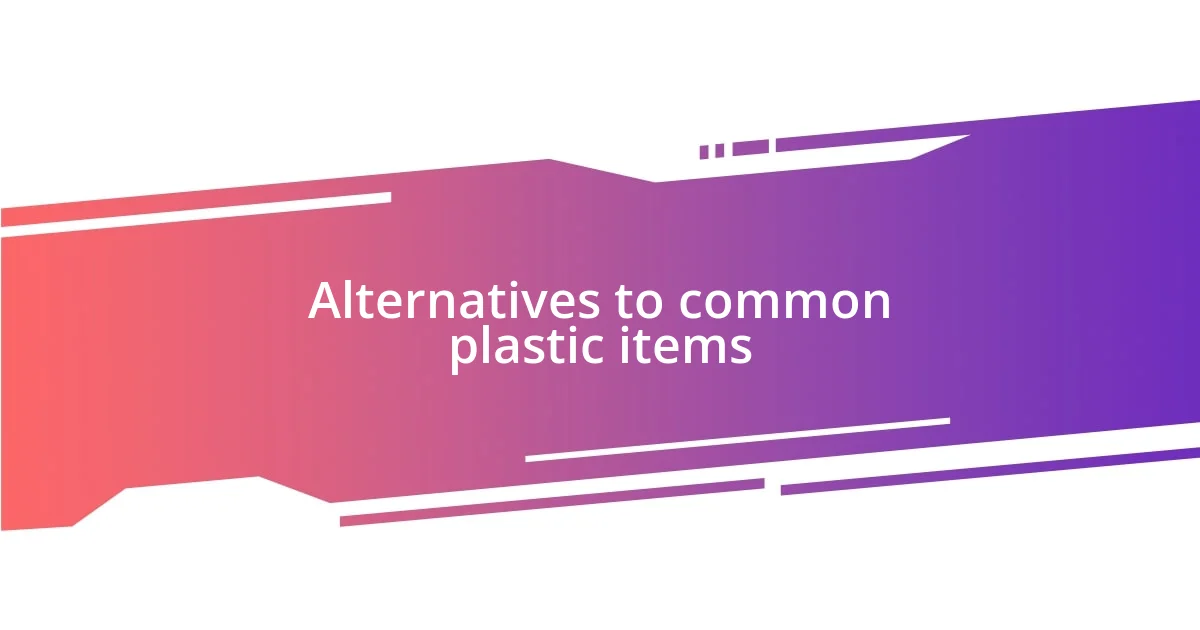
Alternatives to common plastic items
Alternatives to common plastic items are becoming increasingly available and innovative, and I’ve found that integrating them into my life brings a refreshing sense of satisfaction. For instance, I ditched plastic wrap in favor of beeswax wraps, which not only protect my food but also add a vibrant touch to my kitchen. Have you ever experienced the joy of unwrapping your leftovers in something that feels natural and thoughtful? It feels like a small celebration of sustainability every time I reach for them.
Another change that transformed my routine is switching to stainless steel food containers. The first time I packed my lunch in one, I felt a wave of pride. It’s not just about cutting down on plastic waste; it’s the simple elegance of knowing I’m using something durable and long-lasting. The added bonus? They keep my meals fresher and are super easy to clean! There’s something so gratifying about knowing I’m choosing a path that’s good for me and the planet.
I also experimented with fabric napkins instead of paper ones, and let me tell you, it’s a game changer. Not only do they elevate my dining experience, but I feel like I’m making a statement with each meal. The first time guests noticed and complimented my choice, it sparked a conversation about reducing waste. It’s amazing how small shifts can spark bigger dialogues—what alternative will you adopt that could inspire your friends and family to join the movement?
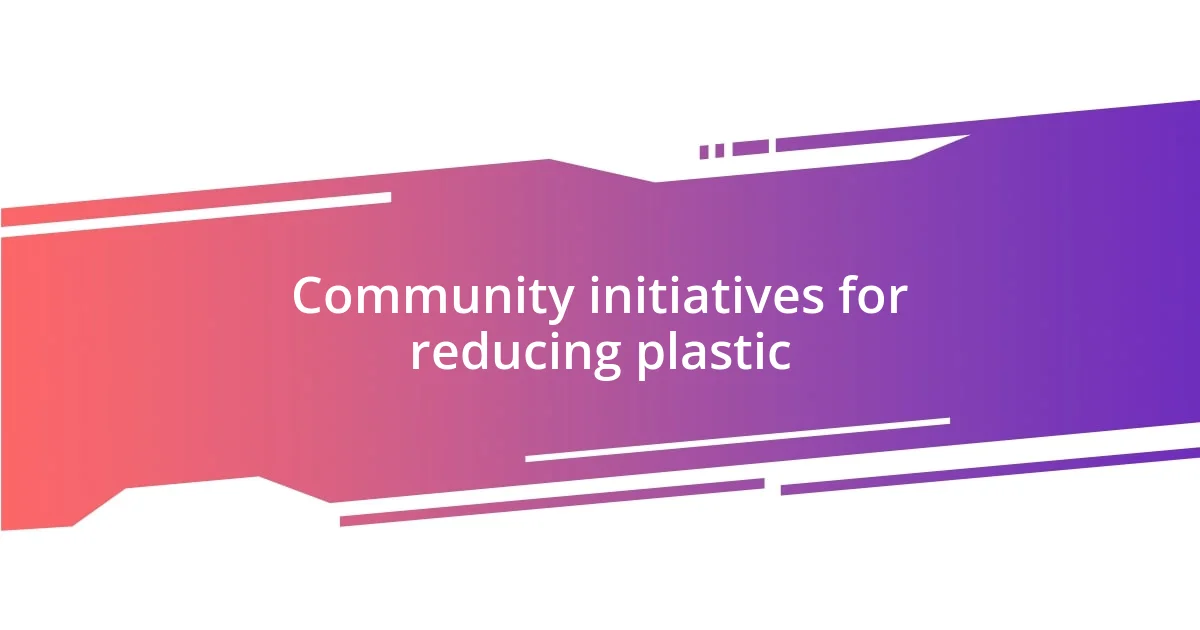
Community initiatives for reducing plastic
Community initiatives play a vital role in reducing plastic waste, and I’ve personally witnessed the powerful impact they can have. For instance, in my neighborhood, we started a beach cleanup initiative last summer, and the camaraderie I felt with my neighbors was incredible. It’s amazing how a simple act can transform not only our environment but also our sense of community. Have you ever participated in a local cleanup? The satisfaction of seeing a cleaner shoreline was worth every bit of effort.
Another initiative that caught my attention was a “no straw” campaign at my local café. When I learned they offered alternatives, like paper and metal straws, it sparked a change in the entire community’s mindset. I remember observing patrons proudly using their reusable options, and it was like a mini-revolution right at our coffee shop! What a simple yet profound way to reduce plastic use with collective action behind it.
Moreover, I’ve also been inspired by local workshops that focus on DIY natural products, which encourage residents to swap out plastic-packed items for homemade alternatives. I attended one recently where we crafted our own cleaning supplies, and I felt a sense of empowerment. It was eye-opening to realize how we can control what we bring into our homes, rather than leaving it to the plastic manufacturers. Have you explored any such workshops in your area? Engaging in these initiatives not only helps the planet but also fosters a sense of belonging and purpose.




